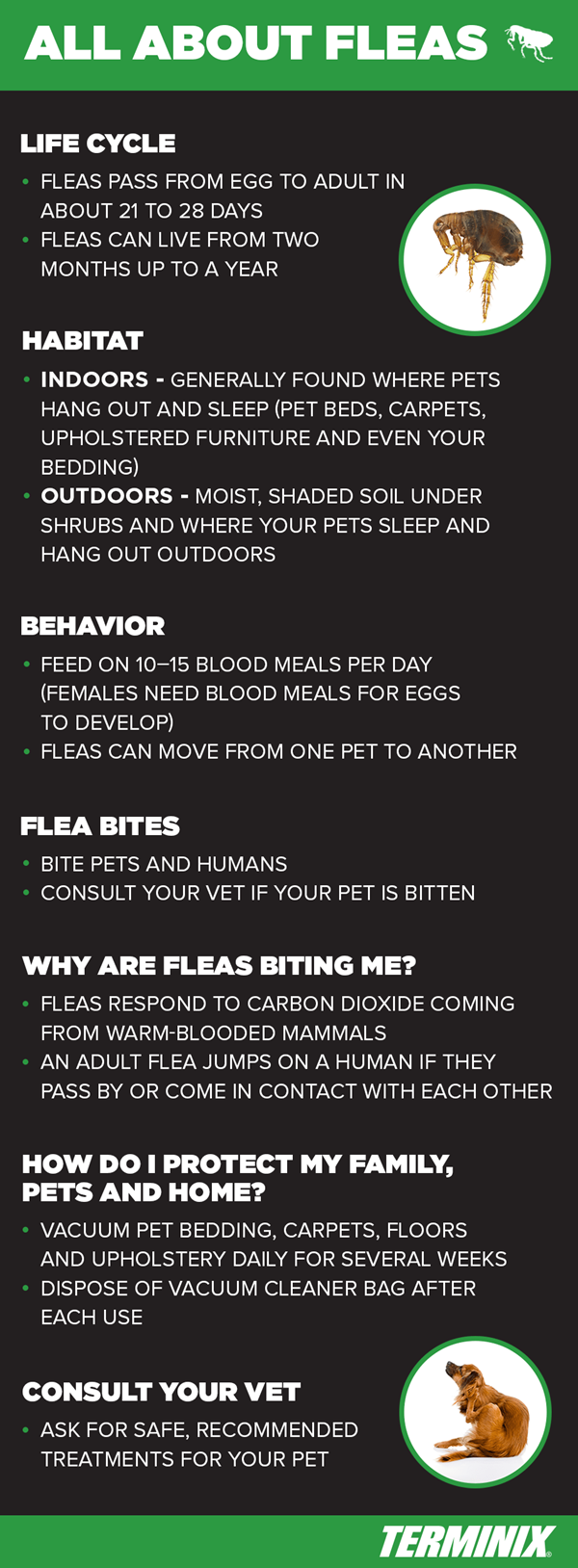They say to know your enemy, so here’s some information to help you get to know the (flea) opposition.

Adult fleas feed on the blood of warm-blooded mammals and are the archenemy of cats and dogs everywhere. Of the 325 species of fleas in the United States, the most common species is the cat flea. Despite its name, the cat flea is the primary flea that infests both dogs and cats. Because they often afflict domestic animals, fleas are also the scourge of pet owners. They say to know your enemy, so here’s some information to help you get to know the (flea) opposition.
Life cycle
Fleas pass through four life stages during metamorphosis: egg, larva, pupa and adult. Female fleas need blood meals for their eggs to develop. The female flea lays 25 to 40 eggs per day on a pet, the pet’s bedding or in cracks in the floor. The eggs laid on a pet fall to the ground and hatch into larvae in about a week. The complete life cycle from egg to adult takes 21 to 28 days. Fleas usually live for two to three months, but they can live for up to a year.
Habitat
You’ll find flea larvae and pupae in the areas where your pets hang out and sleep — pet beds, carpets, upholstered furniture and your bedding if your pet shares it with you. Likewise, you'll typically find fleas outside where your pets hang out and sleep as well. You'll also find them in the moist, shaded soil under shrubs.
Behavior
Fleas eat 10 to 15 blood meals per day. Adult fleas usually live and feed on one cat or dog, but they may move from one pet to another when the animals play or sleep together. Cat fleas are also one of the hosts of dog tapeworms. Children can get tapeworms if they eat a cat flea.
Flea bites
Although fleas usually bite dogs and cats, they may also bite people. Cat flea bites are very annoying to humans. Chemicals in flea saliva trigger an immune response that causes itching. Human flea bites usually occur on the ankles and calves. Dogs and cats may experience a more severe immune response than humans. Flea bites on pets can cause an allergic reaction called flea bite allergy, characterized by irritation and severe itching. If your pet experiences a flea allergy, consult your veterinarian.
Why are fleas biting me?
Fleas don’t usually move from animals to humans. People get bitten by cat fleas when a hungry adult flea comes out of its cocoon and jumps onto a person walking by. Like mosquitoes and other blood-sucking insects, fleas respond to carbon dioxide when warm-blooded mammals breathe.
How do I protect my family, pets and home from fleas?
Vacuum pet bedding, carpets, floors and upholstered furniture every day for several weeks. Throw away the vacuum cleaner bag after each cleaning so the fleas can’t climb.
Consult your vet
Oral insecticides (capsule or tablet form) either kill the adult fleas or prevent fleas from reproducing, thereby eliminating future flea infestations. Topical insecticide treatments applied between the shoulder blades of your cat or dog kill adult fleas and work for about a month.
Call Terminix®
A Terminix professional can expertly assess the situation and apply the correct treatments to help control the flea population in and around your home.
Sources:
Penn State College of Agricultural Science: Department of Entomology




